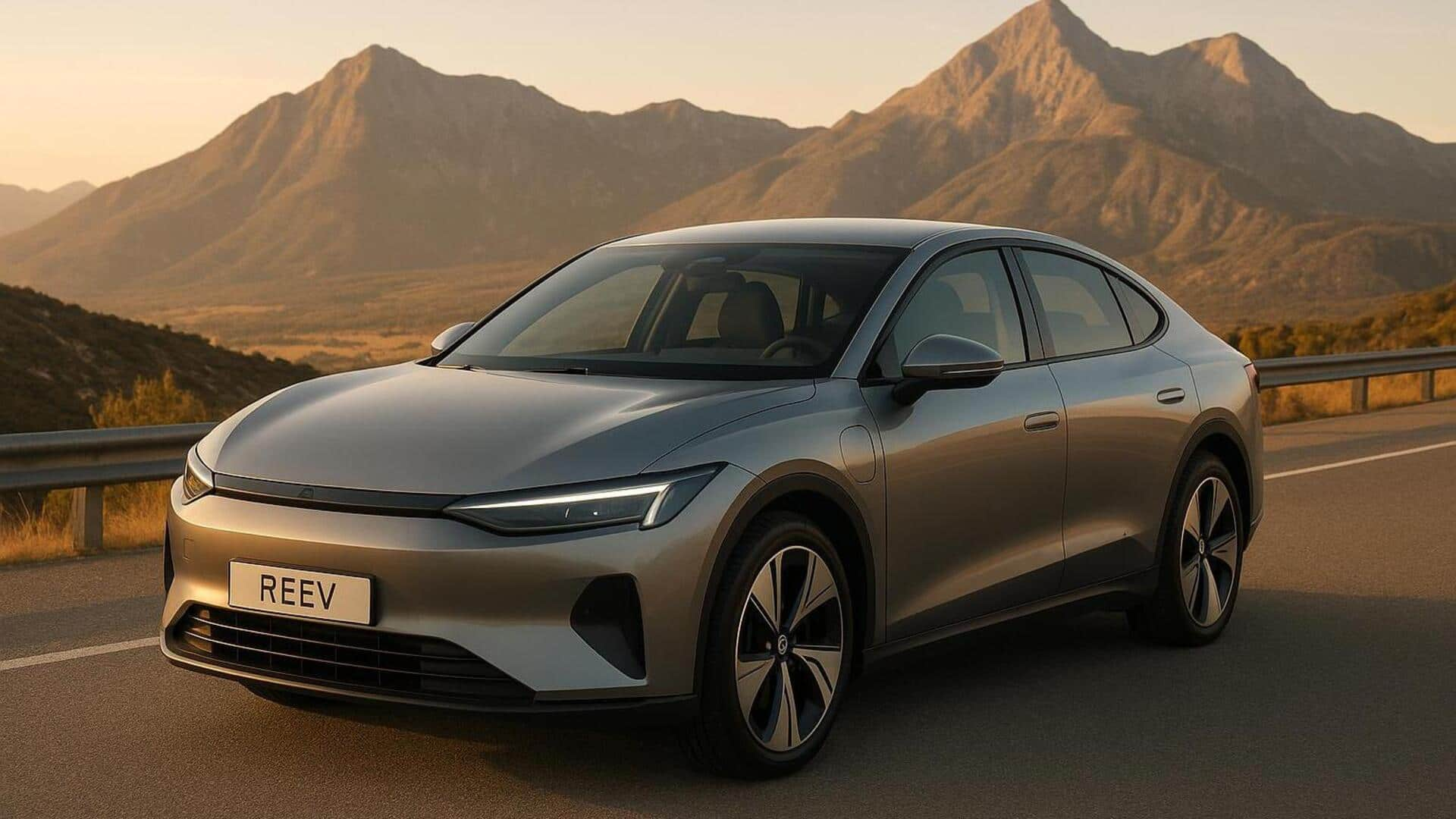
Automakers demand pure EV-level GST for range-extended EVs
What's the story
Leading automotive manufacturers are urging the Indian government to classify Range Extended Electric Vehicles (REEVs) under a lower slab of Goods and Services Tax (GST). Unlike traditional EVs, REEVs are not entirely dependent on external charging. They use a small fossil fuel engine as an onboard generator to recharge their batteries, significantly reducing range anxiety associated with conventional electric vehicles.
Tax implications
Current GST classification and potential impact on REEVs
At present, only pure EVs and hydrogen fuel cell vehicles are taxed at a 5% GST. All other passenger vehicles, including those powered by petrol, diesel, CNG, and hybrids of all kinds, fall under the 18% and 40% GST slabs. This could hurt the affordability of REEVs if they are classified under higher tax brackets due to their size (generally over 4.5 meters long).
Efficiency comparison
REEVs's mileage and emission profile
REEVs can deliver a mileage of around 35km/l, which is better than hybrids and plug-in hybrids. The Associated Chambers of Commerce and Industry of India (Assocham) has also argued that the emission profile of REEVs is similar to pure EVs and nearly 70% lower than internal combustion engine (ICE) vehicles under normal driving conditions. This further strengthens their case for lower GST classification.
International influence
Global market trends and India's REEV prospects
China is the only country where REEVs are available on a large scale. Their market share has grown from 4% in 2021 to 13% now, and is expected to reach 16% by 2030. This trend has caught the attention of automakers like Volkswagen and Stellantis in Europe and the US as a potential way to drive EV sales growth.
Infrastructure savings
REEV technology could reduce India's highway charging infrastructure costs
The adoption of REEV technology could save India a lot of money on highway charging infrastructure. Assocham's letter to the Ministry of Heavy Industries noted that India would have to invest around ₹16,000 crore in public charging infrastructure over the next five years just for the projected Electric Passenger Vehicle Stock. More investment would be needed for other electric vehicle categories such as busses and trucks.